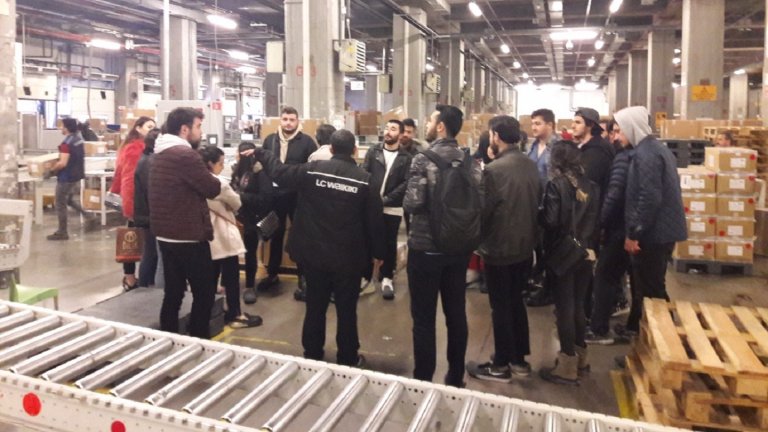
1:00 PM – 3:30 PM
DSC Digital Supply Chain GmbH and the Digital Transport and Logistics Platform Initiative Group invite you to take a perspective into the future of transport and logistics. The event will be hosted by Sergey Tumel, an international expert in electronic data exchange and e-logistics, who, as DTLP project manager, has a comprehensive technical understanding of the topic.
What is DTLP?
A network of digital transportation and logistics platforms that unites all major supply chain participants to create modern digital mechanisms for collaboration in the processes of trade, transportation, accounting and government regulation. The services the platform is designed to provide start from finding trading partners, planning and negotiating international multimodal transport routes, to additional services such as customs clearance.
DTLP does not replace the corporate IT systems of the supply chain participants, but creates a digital infrastructure and a trusted shared information space to achieve synergetic optimization effects from the interaction of these IT systems. To this end, DTLP is integrated into the pan-European data transmission network based on UN/CEFACT standards of the European Union (e-FTP) and is also a transition bridge into the Eurasian Economic Union Network (EAEU) and further into the Chinese LOGINK network and the NIALNET network, which unites the trade and economic partners Japan and South Korea. For this purpose, the possibility of cross-border transmission of electronic documents of different legal systems with mutual recognition of their legal significance is envisaged.
The mechanisms envisaged to provide such opportunities are the use of trusted third party (TTP) software and hardware complexes and blockchain technology. The fundamental difference between DTLP and numerous integration platforms, including TRADELENS is:
A customized approach to each participant in the supply chain, including providing individual interfaces for their IT systems to interact with DTLP and ensuring the confidentiality of their business information, including protecting it from unauthorized access. Providing digital tools not only for exchanging electronic data and documents, but for building individual commodity distribution networks of supply chains from suppliers to consumers. This provides for the possibility of booking the required resources of transport and logistics infrastructure and vehicles of different transport modes, as well as the possibility of influencing the economic processes of these resources on a contractual basis in a timely manner. This includes the use of smart contracts.
The use of this international platform brings many benefits to all parties involved in the transport of goods, from the simple creation and transmission of documents to complex tasks such as the planning of international multimodal transport routes with multiple participants.
Target group
The free event will be held in English and is aimed at students, young professionals and professionals.